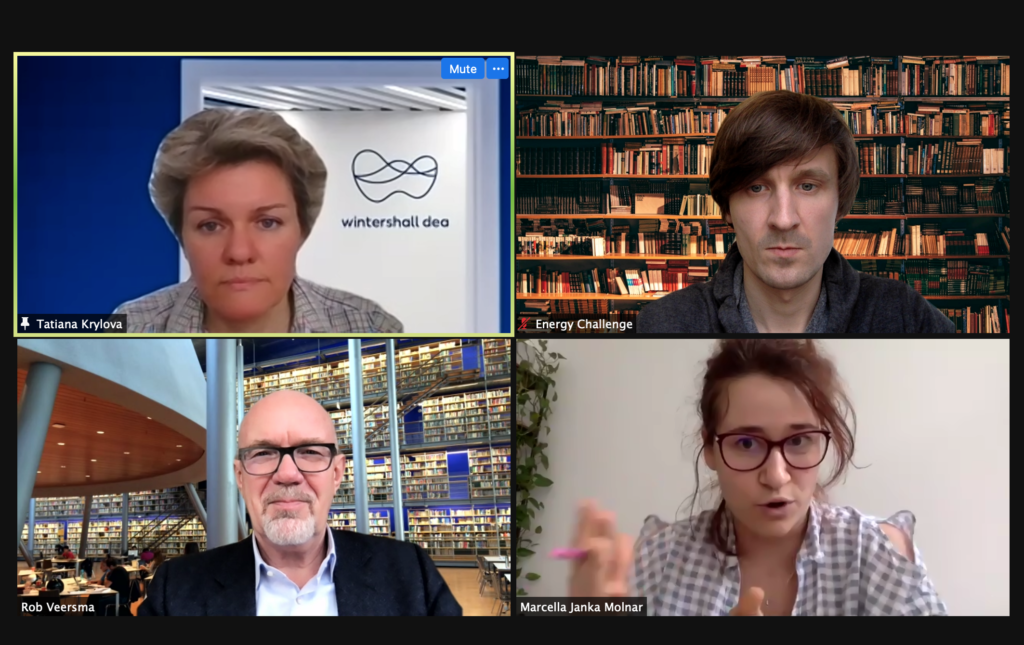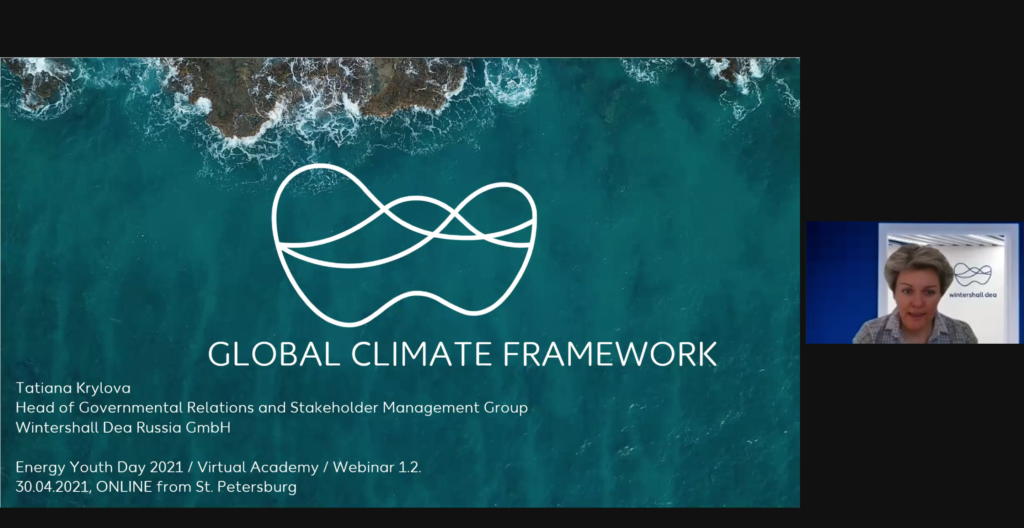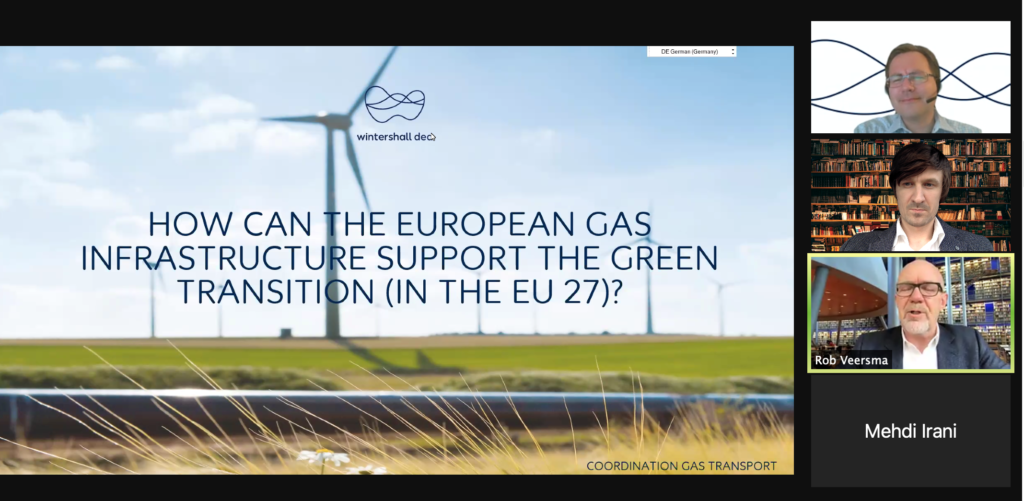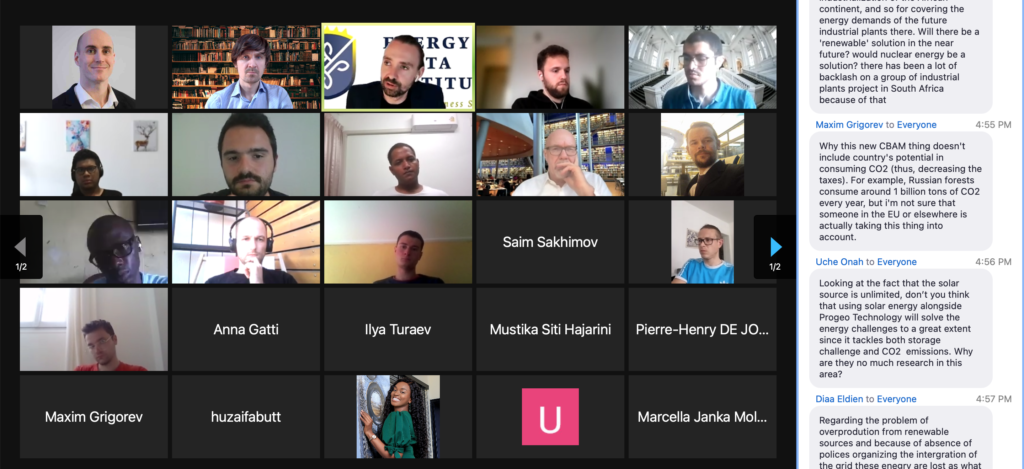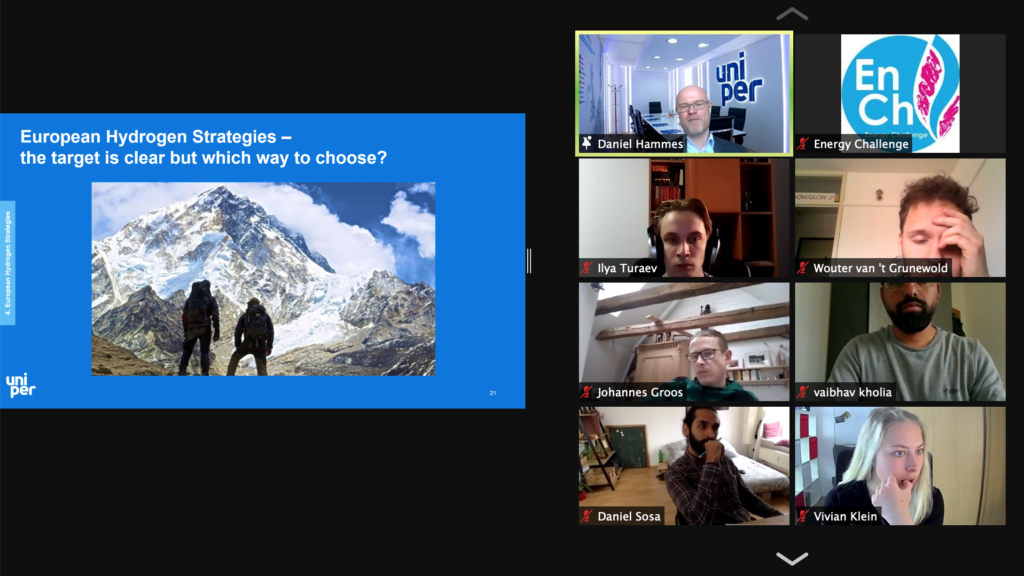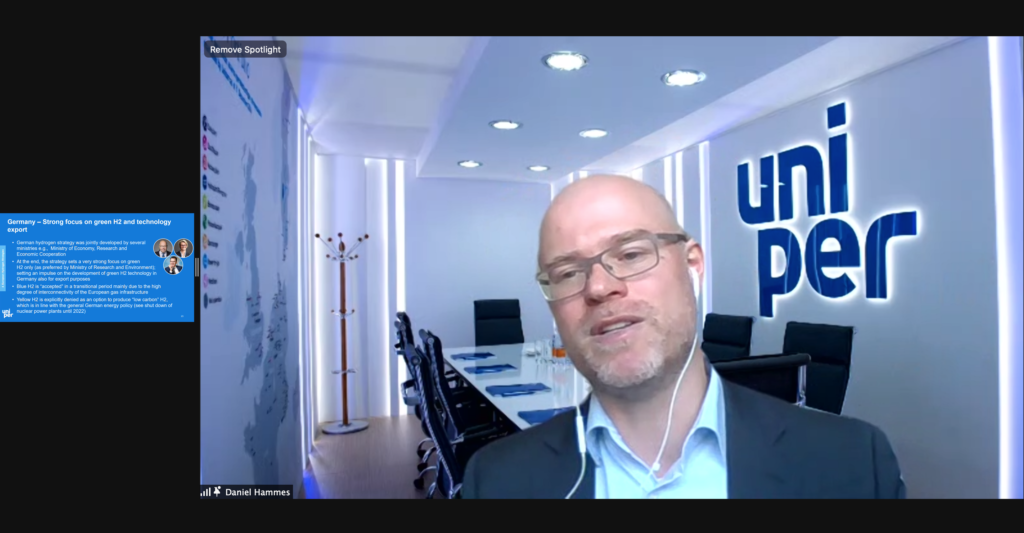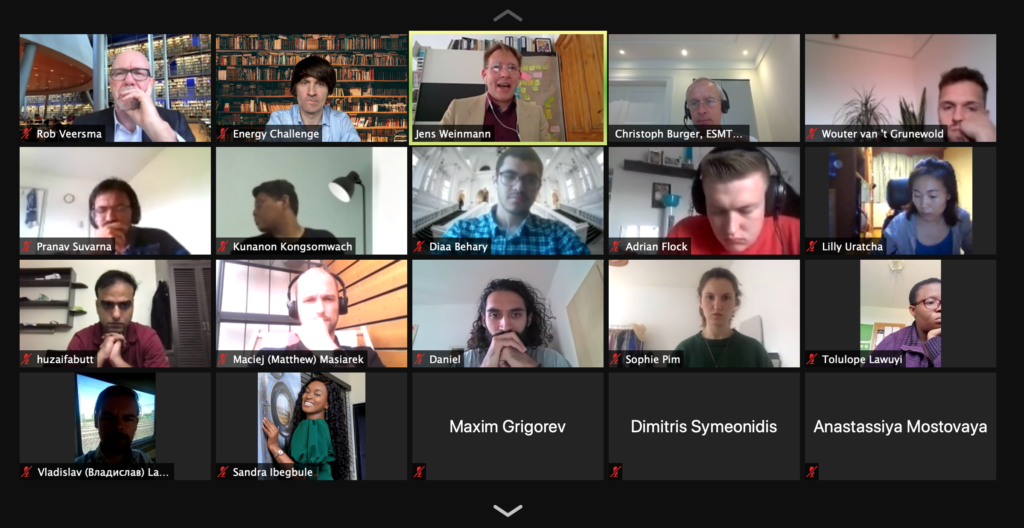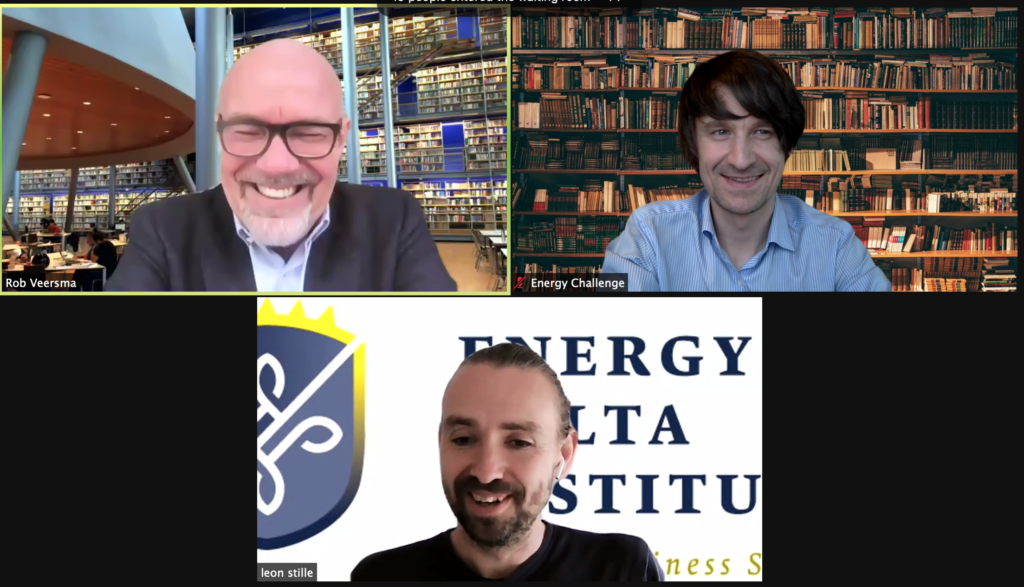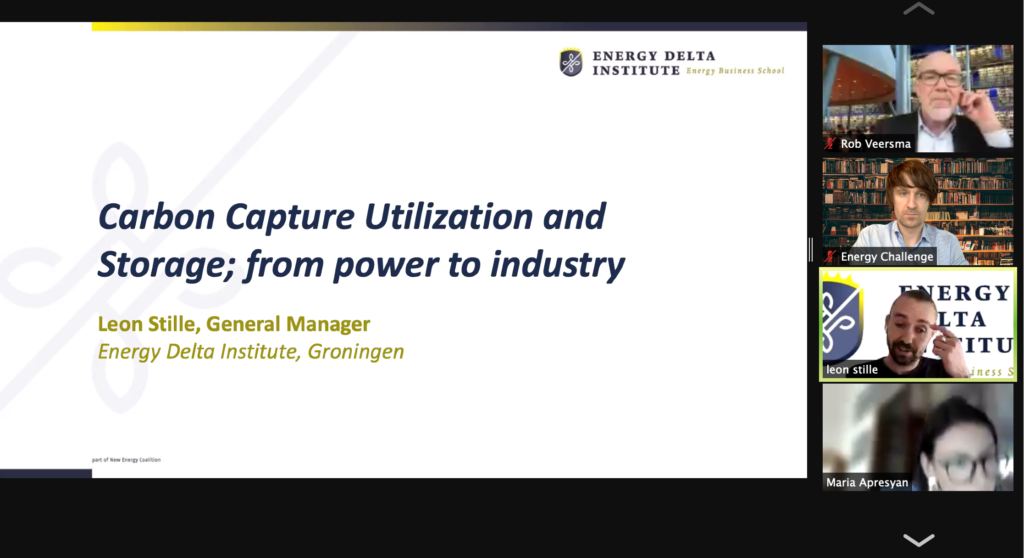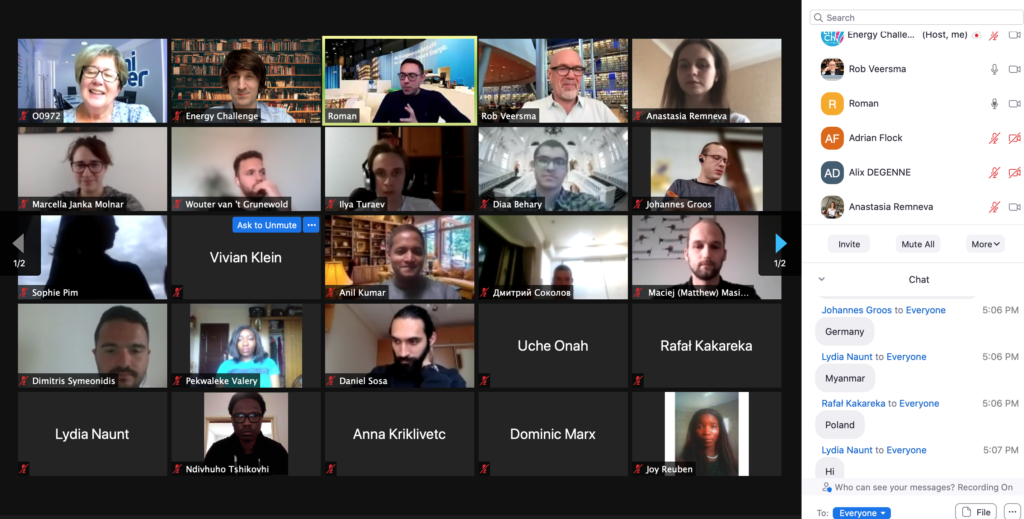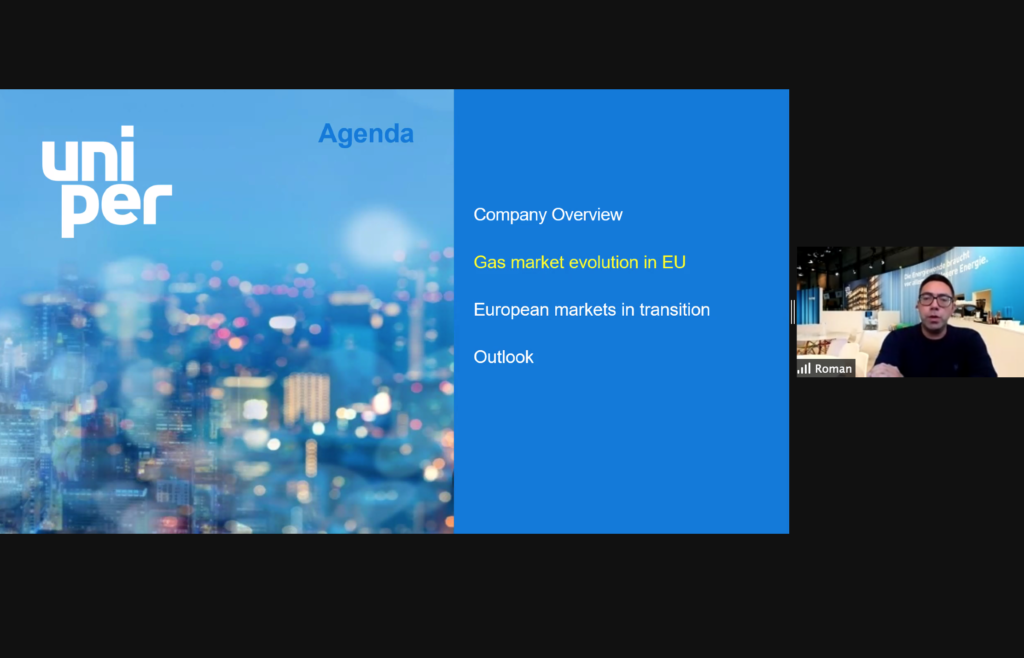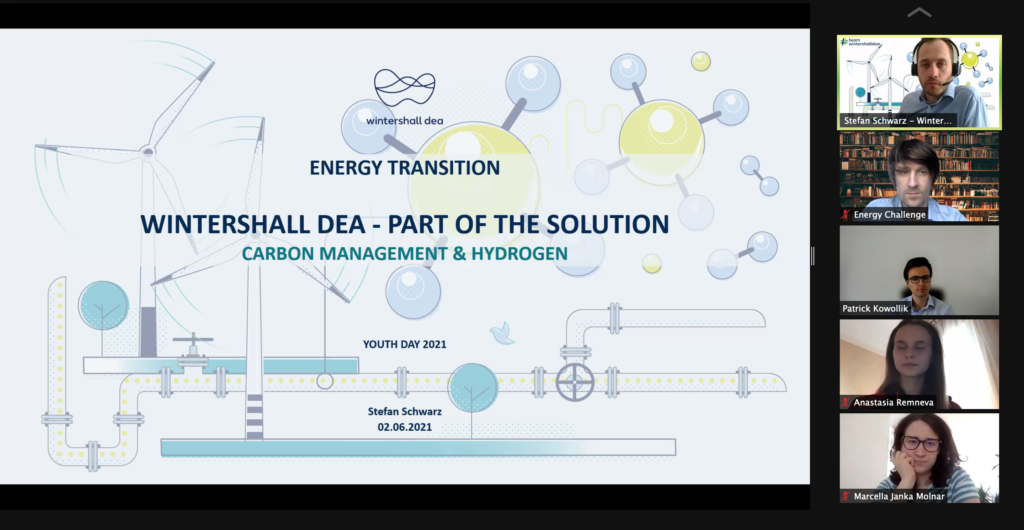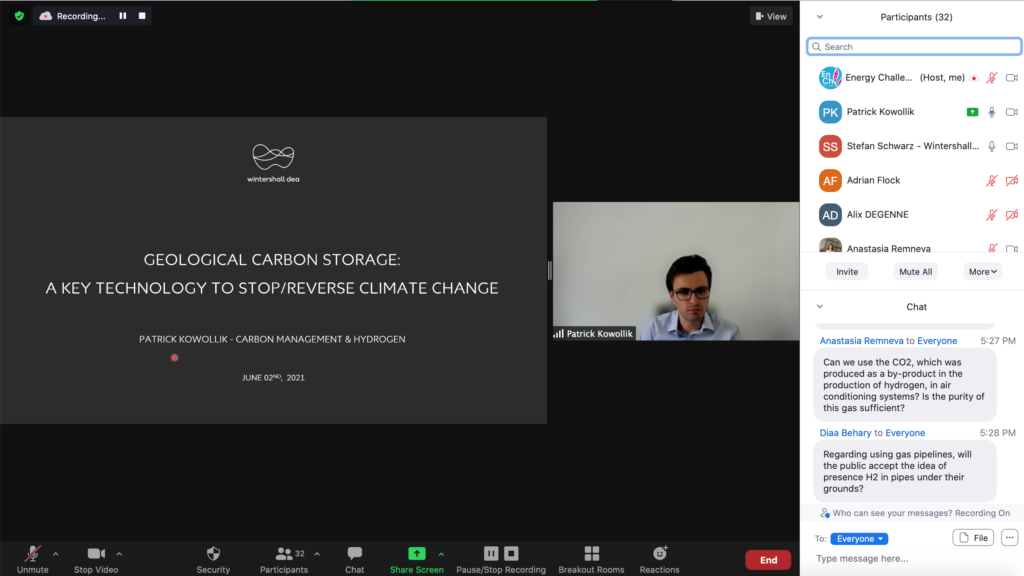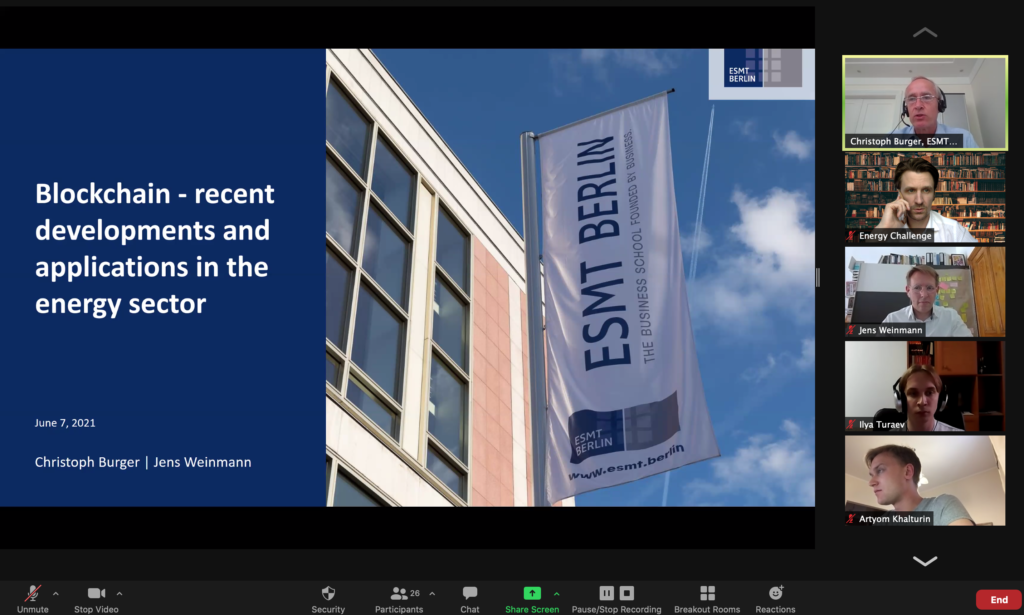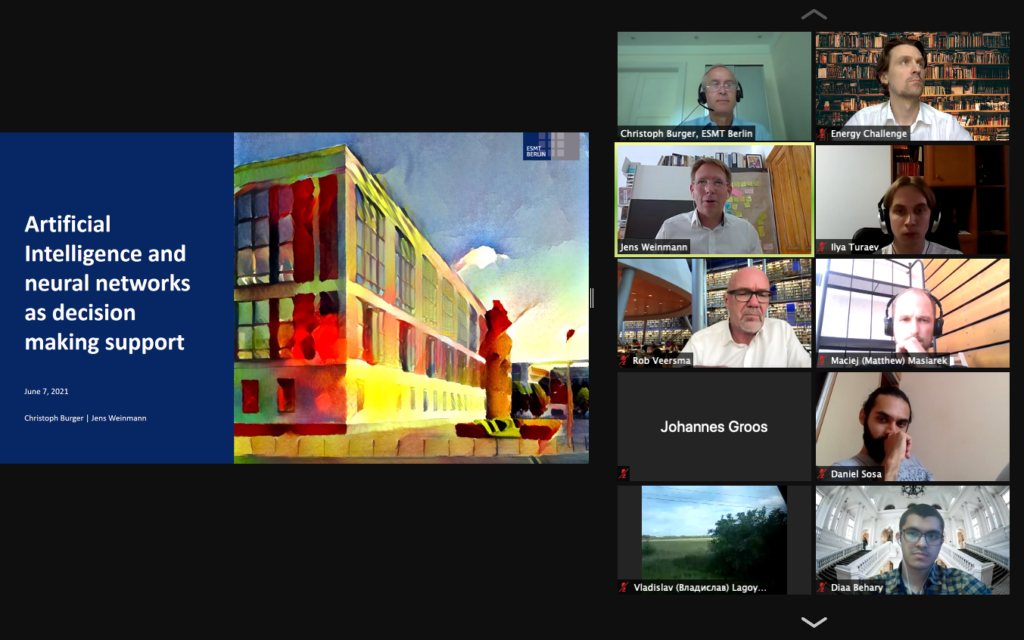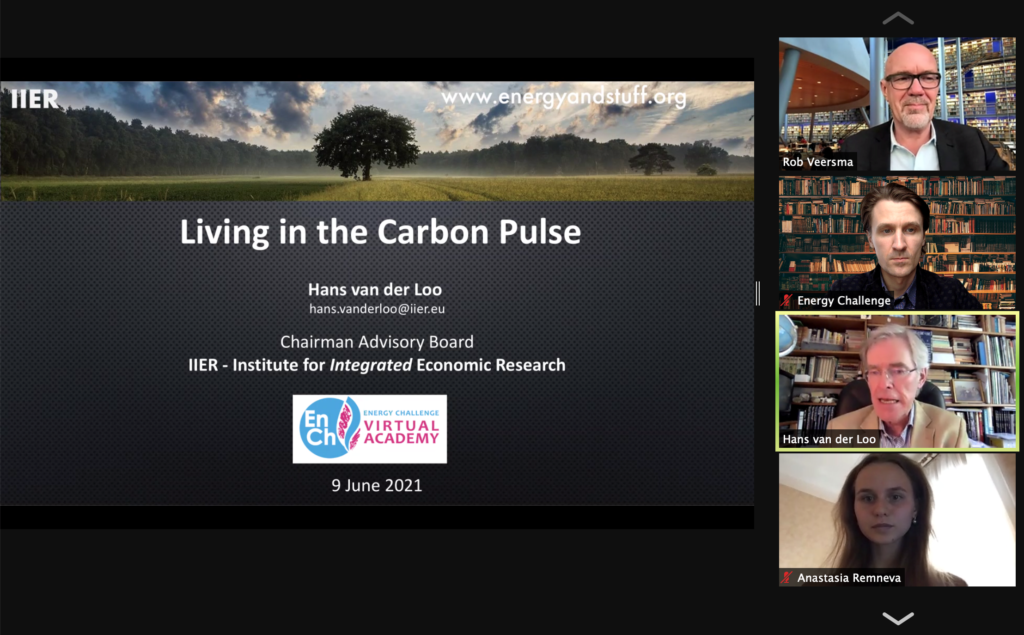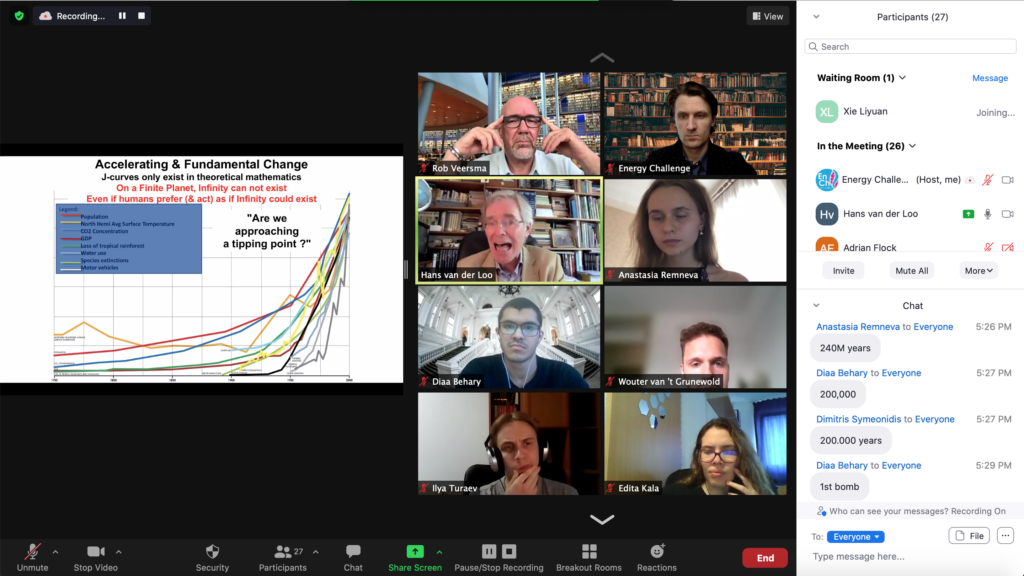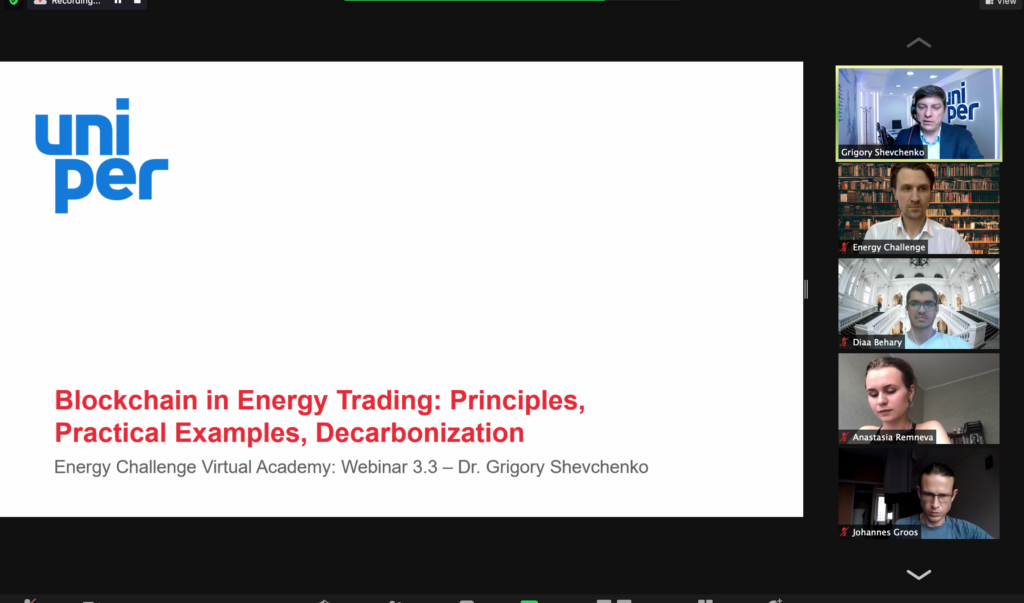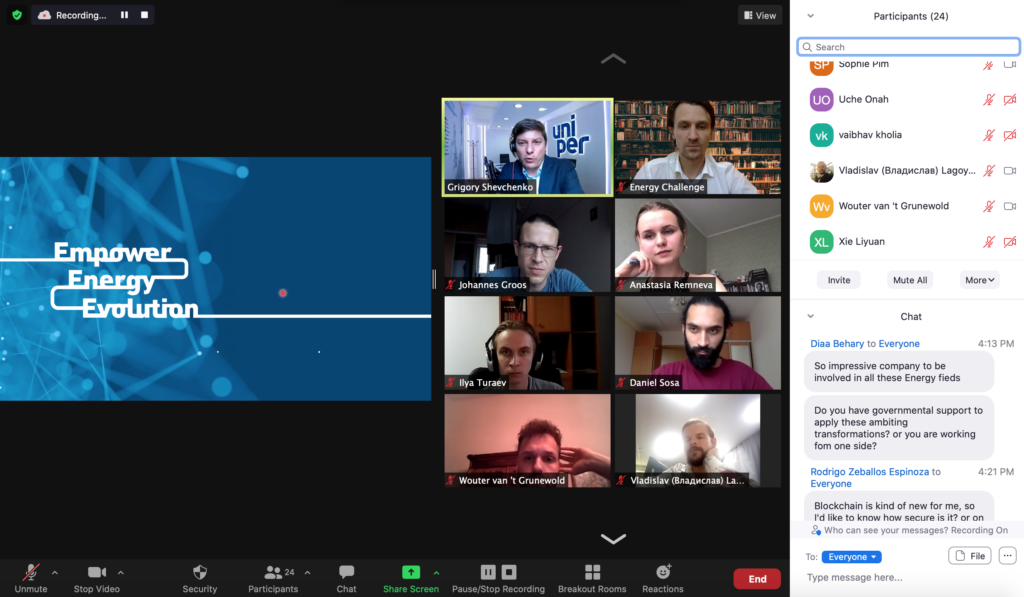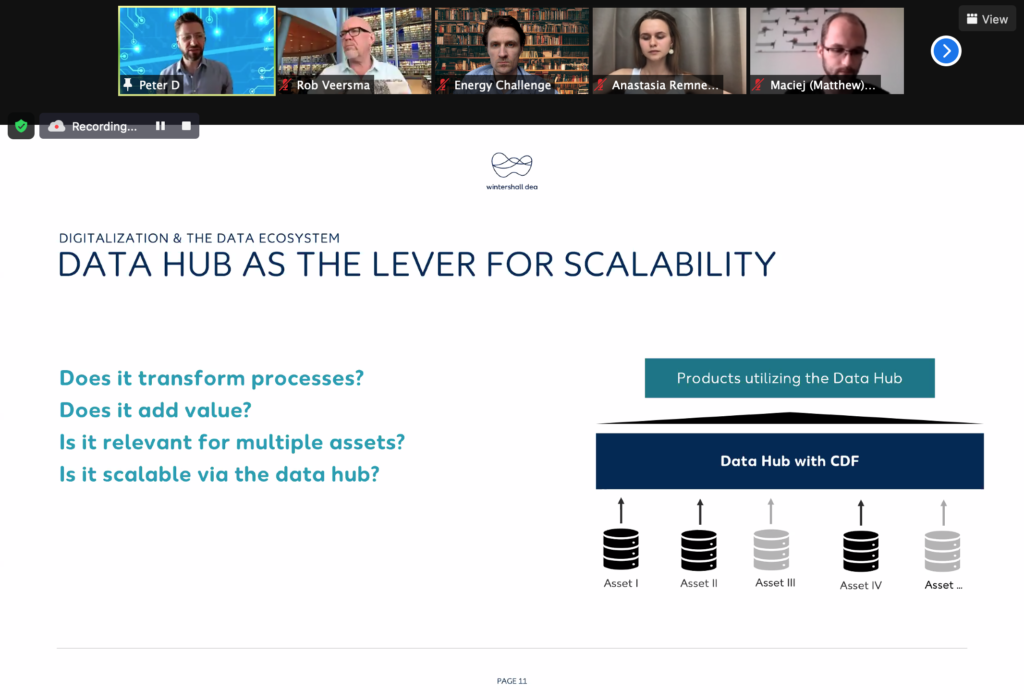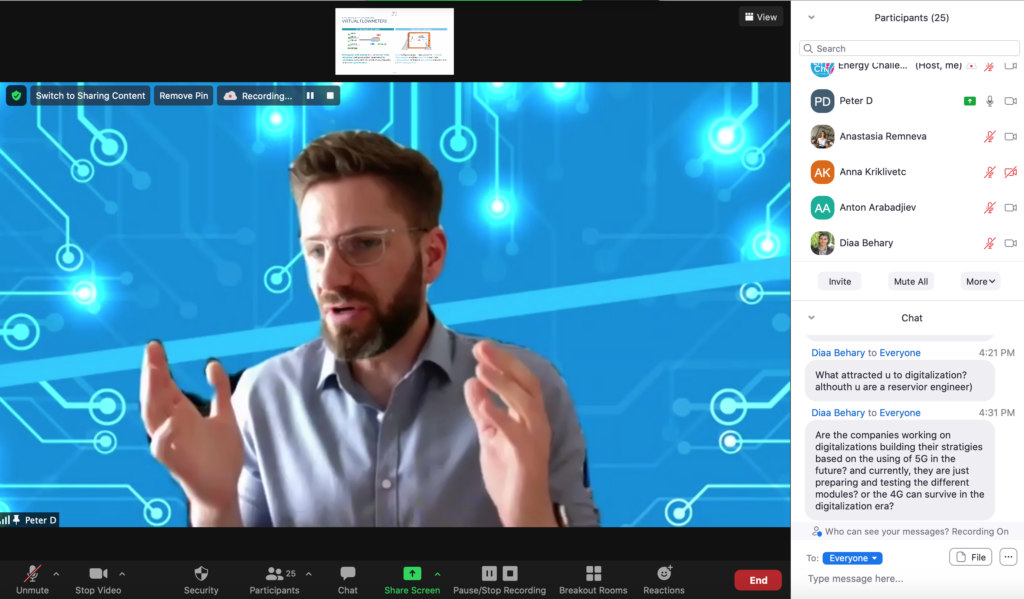Project news
Energy Challenge 2021 outcomes
In 2021, the international student project Energy Challenge (formerly Youth Day) took place for the seventh time. The goal of the project is to provide an interactive platform that unites leading industry experts and talented students from all over the world to transfer knowledge about the energy business and find new ideas and solutions.
The organizers and partners of the project are Higher Economic School of St. Petersburg State University of Economics (HES UNECON), International Business Congress (IBC), PJSC Gazprom, Uniper SE, Wintershall Dea AG, OMV AG, N.V. Nederlandse Gasunie, Energy Delta Institute, ESMT Berlin and Expoforum.
The participants are students from different universities of the world, leading industry experts and top managers of international energy companies, as well as representatives of the academic community.
The project includes two stages: the online educational program of Virtual Academy and events of Youth Day as part of St. Petersburg International Gas Forum (SPIGF), which has the status of IBC’s working project.
Stage 1. Virtual Academy
This year the project started on April 26. About 500 applications were submitted. 263 candidates representing 81 universities from 20 countries completed the qualification test and were enrolled in the Virtual Academy for the program “Embracing Uncertainty with 3D: Decarbonization, Decentralization, and Digitalization”.
The program included 18 webinars held with the support of partner organizations such as HES UNECON, Gazprom, Wintershall Dea, Uniper, Energy Delta Institute, ESMT Berlin, and OMV. Such topical issues as global climate disruption, energy transformation and decarbonized energy systems, innovations, new business models, market and technological trends were covered and discussed in the program. The participants were especially interested in the hydrogen, CCUS technology, blockchain, and artificial intelligence topics.
Each meeting lasted from one to three hours. After the webinars, highly engaging discussions continued in the participants’ telegram chat, where they shared their opinions, additional materials, and sources.
The tandem of moderators Rob VEERSMA from Gazprom International Training B.V. and Pavel METELEV from HES UNECON ensured communication between speakers and audience.
Students completed three individual assignments as part of the Academy. Their results, together with the scores for the qualification testing, were displayed in each student’s rating.
In July, based on the results of the rating, the top 40 students were invited to participate in the Youth Day of the 10th St. Petersburg International Gas Forum.
However, even before the start of the main Youth Day events, the participants had to complete several tasks of a business case, developed by HES UNECON together with ESMT Berlin.
The first part of the case is group work.
All 40 participants were divided into six teams. Each team had to solve a case entitled “Climate risk management and low-carbon economy”. The students functioned as risk managers: they analyzed climate risks for the project partner companies (Gazprom, Uniper, Winteshall Dea, OMV, Gasunie, and Shell), searched the approaches to reduce risks, and developed the company’s strategy in a low-carbon economy.
On September 3, all teams had submitted interesting and professionally completed projects.
The second part of the case is individual work.
Next, the participants had to prepare an individual project. Each one had to answer a challenging question: “How digital technologies can help climate change mitigation?” The results should be performed on the Youth Day in a two-minute pitch presentation.
By October 1, students should have conducted a lot of analytical and research work: find innovative solutions in the energy sector to mitigate global climate change related to modern digital solutions (Blockchain/Distributed Ledger Technologies, AR/VR, Additive Manufacturing (3D Printing), Quantum Computing), and present the best solution in an abstract, accessible, illustrative and interactive way.
Stage 2. Youth Day
On October 5-7, the X St. Petersburg International Gas Forum hosted Youth Day.
40 outstanding students from 25 universities in nine countries were able to meet online with leading experts and executives of energy companies, demonstrate their knowledge and competence, learn from the experience and perspective on the future development of the industry.
On October 5, the Youth Day 2021 Opening Session kicked off a three-day program of events. In the first official part, the patrons and organizers of the project addressed the students with parting words. Elena Kasyan, Head of Department of PJSC Gazprom, and Iana Klementovichus, Vice-Rector for Advanced Studies of UNECON and Director of HES UNECON, presented the midterm results, spoke about the preparation for the final events and thanked all the partners who had participated.
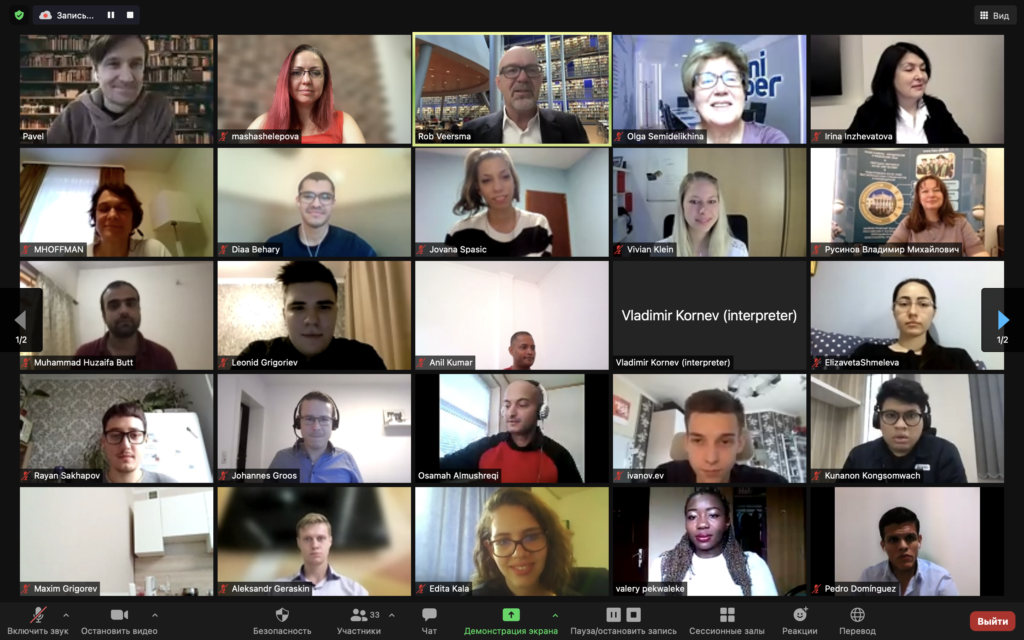
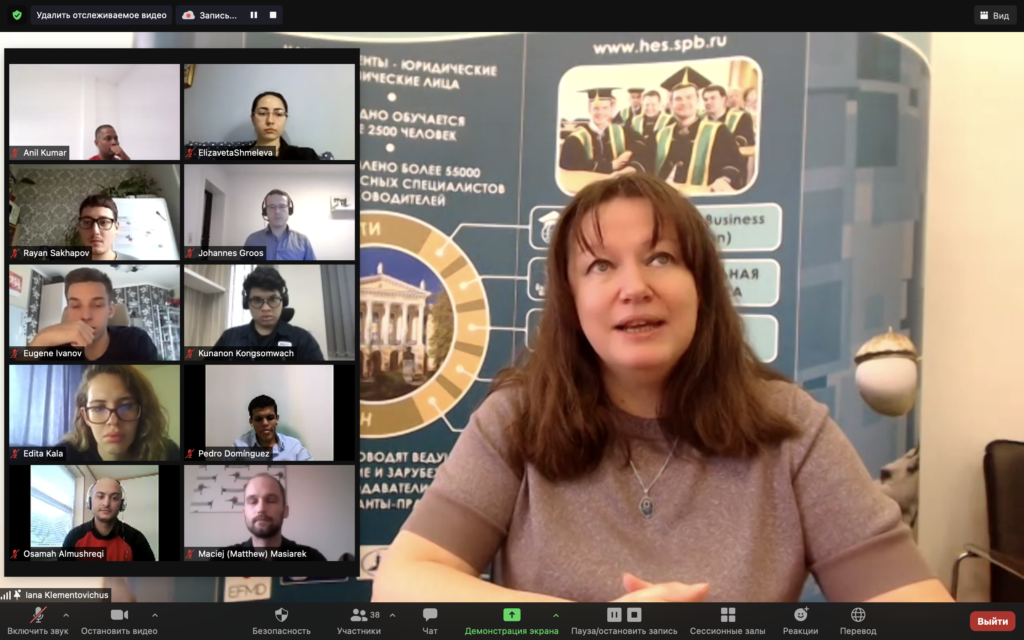
Project Executive Committee representatives Irina Inzhevatova (IBC, PJSC Gazprom), Margarita Hoffmann (Wintershall Dea AG) and Olga Semidelikhina (Uniper Global Commodities SE) were also happy to address the students with motivational messages. The students, in turn, expressed their enjoyment of the long-awaited Youth Day meeting as well as their impressions of participation in the Energy Challenge project, the most striking meetings with experts during Virtual Academy and challenging preparation for the final events.
Then the moderator of the meeting, Pavel Metelev (HES, UNECON), described the activities for the next two days. After that, the second moderator Rob Veersma (Gazprom International Training B.V.) gave the students a training session on team building. This knowledge will help them in the group stage of the intellectual competition.
At the end of the session, the representative of the project organizers Maria Shelepova (HES UNECON) answered the participants’ questions and wished everyone to work productively and have bright impressions.
On October 6, there were the finals of the Business Case “Digital Technologies and Climate Risk Reduction”. Students could finally present their innovative projects in a pitch session format. Each one had only two minutes to present an idea to the audience. Other participants and several experts from the partner companies voted for the most interesting ideas. The authors of the five best projects became the leaders of the teams assembled from among the remaining participants. For several hours, moderators Jens Weinmann and Christoph Burger (ESMT Berlin) consulted the hard-working teams, offering project development methodology and tools for preparing final pitches.
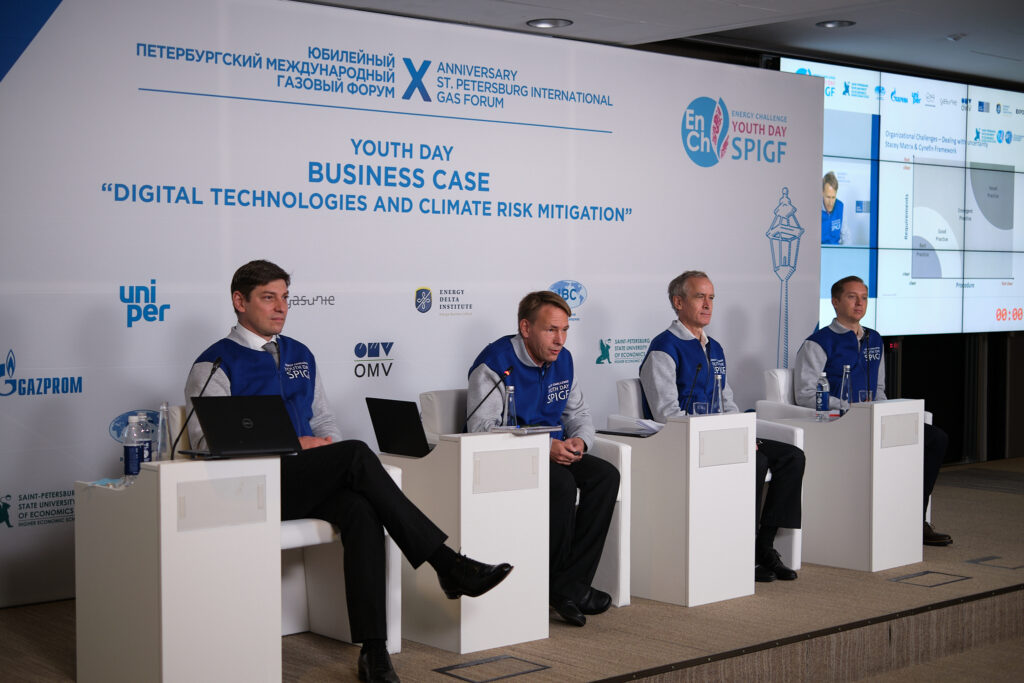
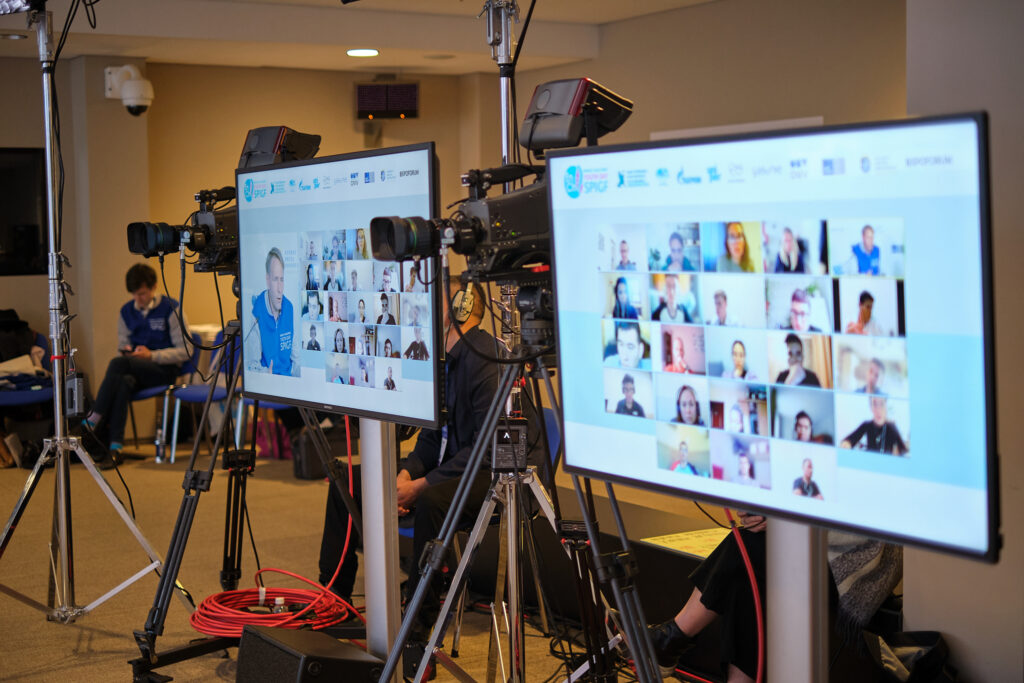
In the afternoon, an expert jury joined the event. They are Andreas Beha (Wintershall Dea AG), Dmitry Vasilenko (UNECON), Bram Onk (N.V. Nederlandse Gasunie), Anton Starovoitov (OMV AG), Grigory Shevchenko (Uniper Global Commodities SE) and Leon Stille (Energy Delta Institute). They first consulted each team and then reviewed and evaluated the presentations of the five final and fully designed projects.
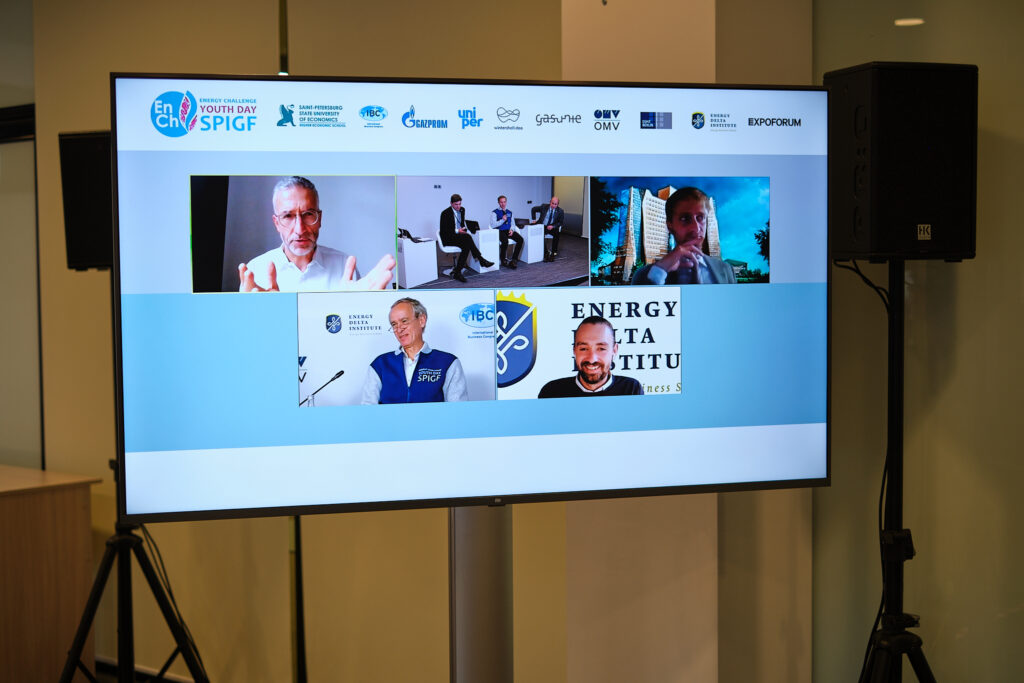
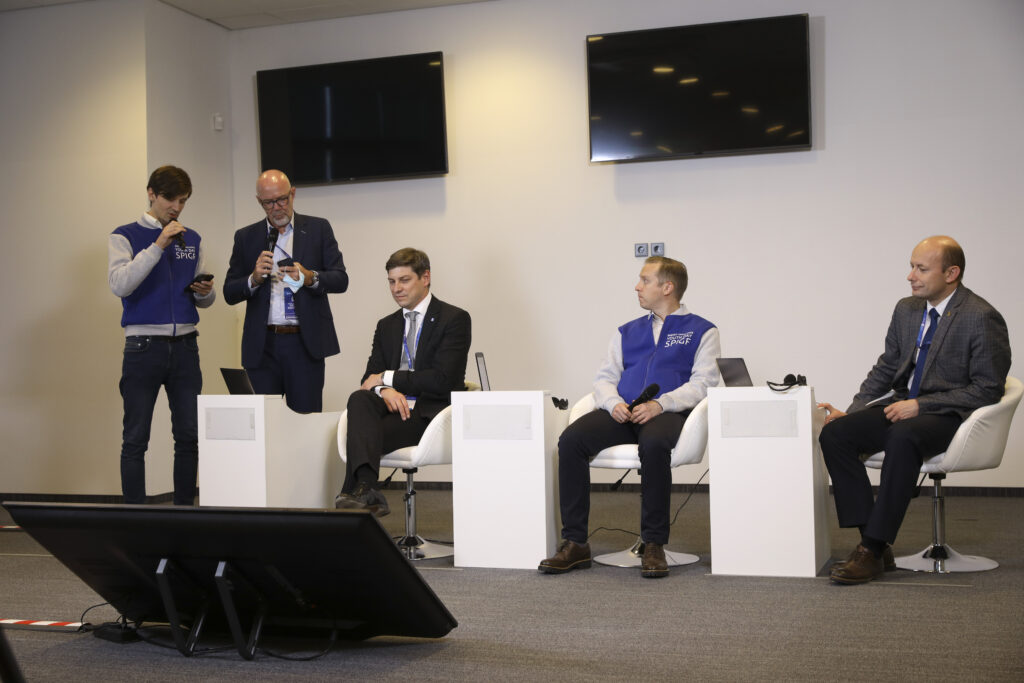
The winner of the Business Case was Vivian Klein, a student at the University of Leipzig, with her project “Using Artificial Intelligence to Prevent Fires”. Second and third place were shared by Edita Kala with her project “Machine Learning Technology for Battery Materials Innovation” and Johannes Jacob Groos with his project “SonUrban Energy Management System (EMS)”.
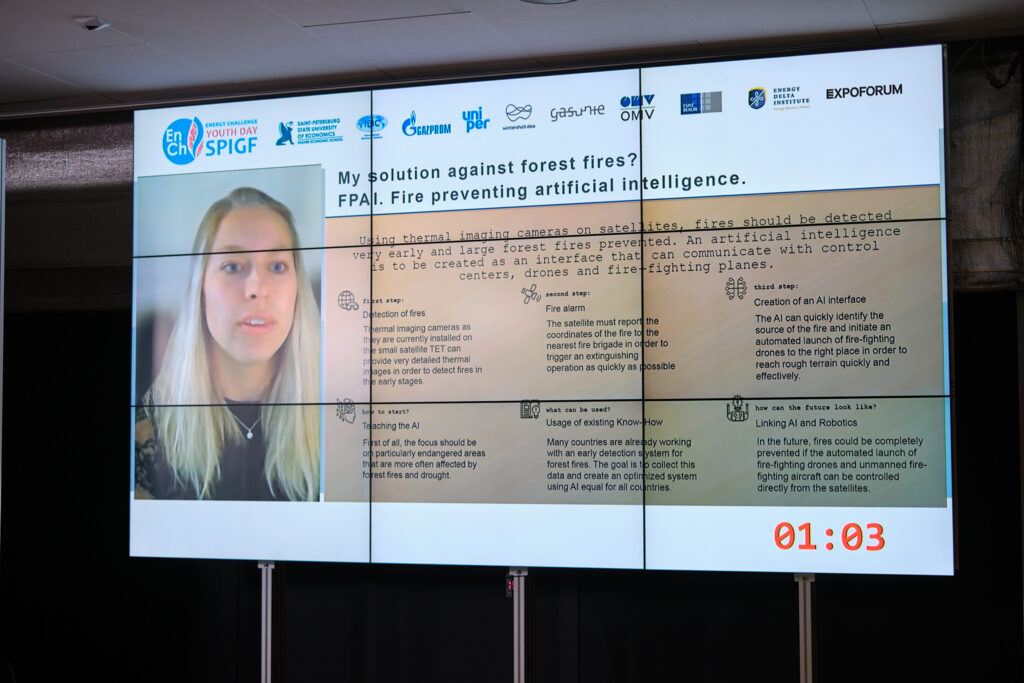
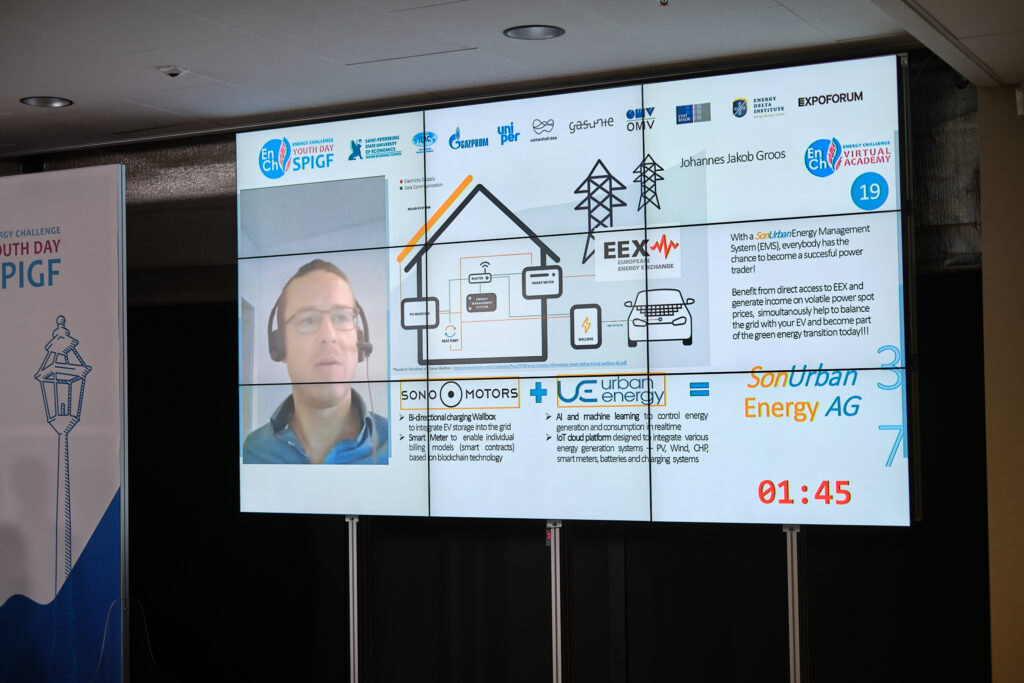
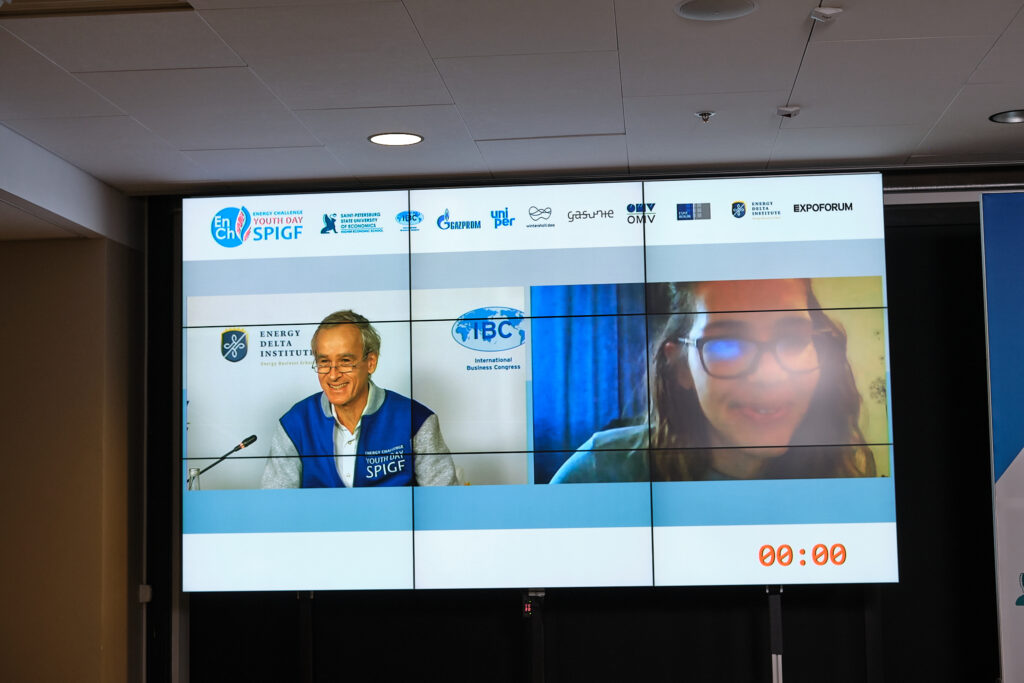
The final and most expected event of the Youth Day was the “Meeting with Top Managers of Energy Companies”, which took place on October 7 in a hybrid format. Some of the speakers and the audience were in the hall at the ExpoForum venue, while other speakers and students connected online. Despite the distance of thousands of kilometers between the participants, it turned out to be a productive and interesting dialogue between the top managers of the companies and the future leaders of the industry.
Sergey Khomyakov, Deputy Chairman of the Management Committee of PJSC Gazprom, opened the meeting. He welcomed all participants and partners and announced the names of the 2021 project winners: Vivian Klein (University of Leipzig), Johannes Jakob Groos (University of Leipzig), Edita Kala (Ruhr University Bochum), Kunanon Kongsomwach (Asian Institute of Technology) and Pedro Dominguez (University of Aberdeen). Elena Burmistrova, Deputy Chairman of the Management Committee of PJSC Gazprom and General Director of Gazprom Export LLC, also addressed the participants, speakers and the audience with a welcoming speech.
After the official part, moderators Pavel Metelev (HES UNECON) and Rob Veersma (Gazprom International Training B.V.) introduced the speakers: Johan Moritz, Vice President of Uniper Global Commodities SE, Mario Mehren, Chairman of the Board and CEO of Wintershall Dea AG, Reinhard Oswald, Senior Vice President of OMV AG, Han Fennema, CEO and Chairman of the Executive Board of N.V. Nederlandse Gasunie, and Niels AndreasMasvi, Vice President of DNV GL.
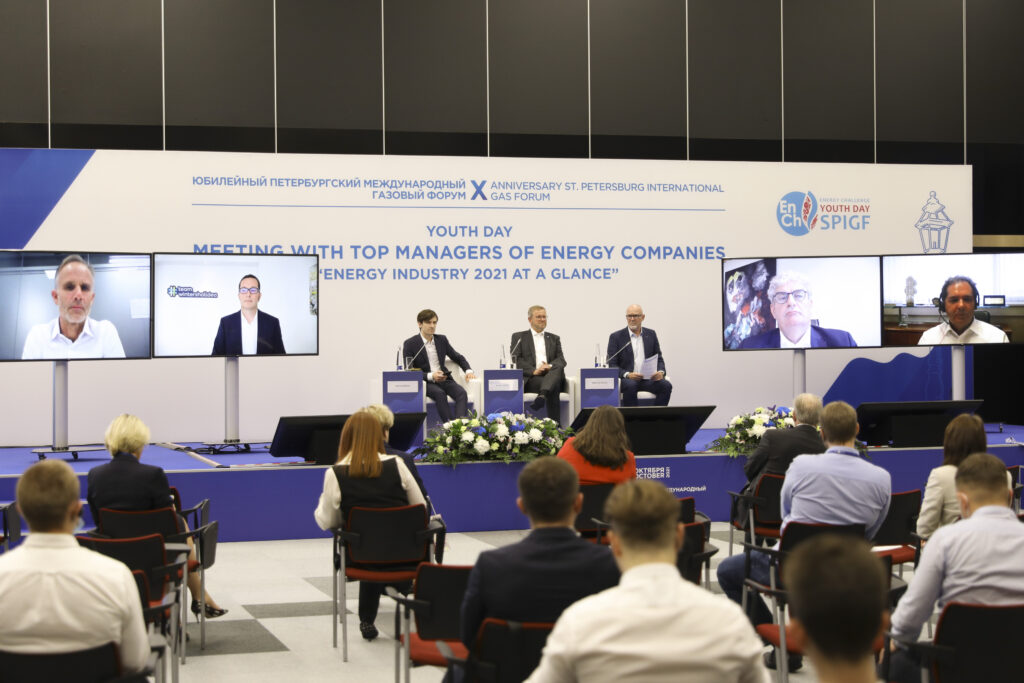
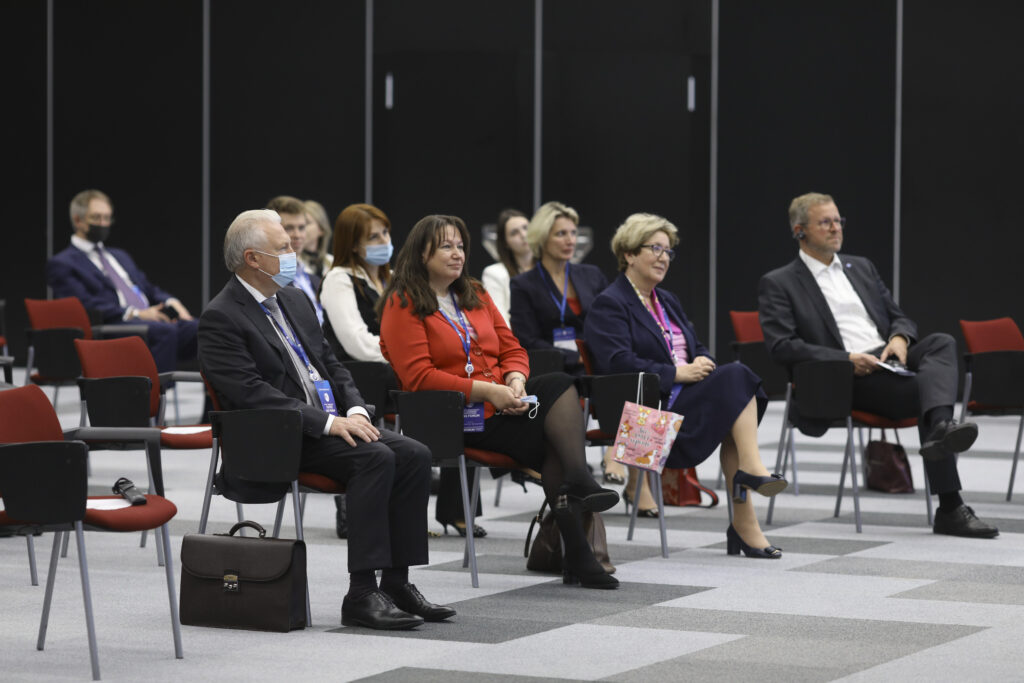
The main part of the meeting was divided into two stages. First, students answered special thematic polls, and the speakers commented on the results, which sometimes did not meet their expectations. After the five-minute speeches on different topics, the students were able to ask the top managers their questions in person.
At the end of the meeting, Igor Maximtsev, Rector of St. Petersburg State University of Economics, thanked all the participants, partners, and organizers.
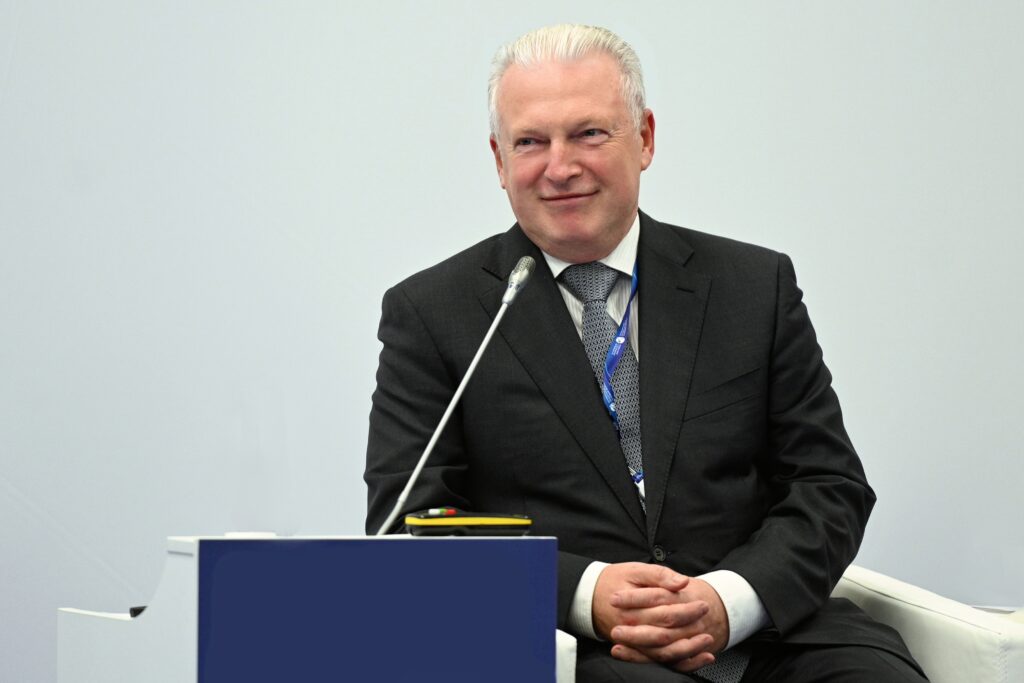
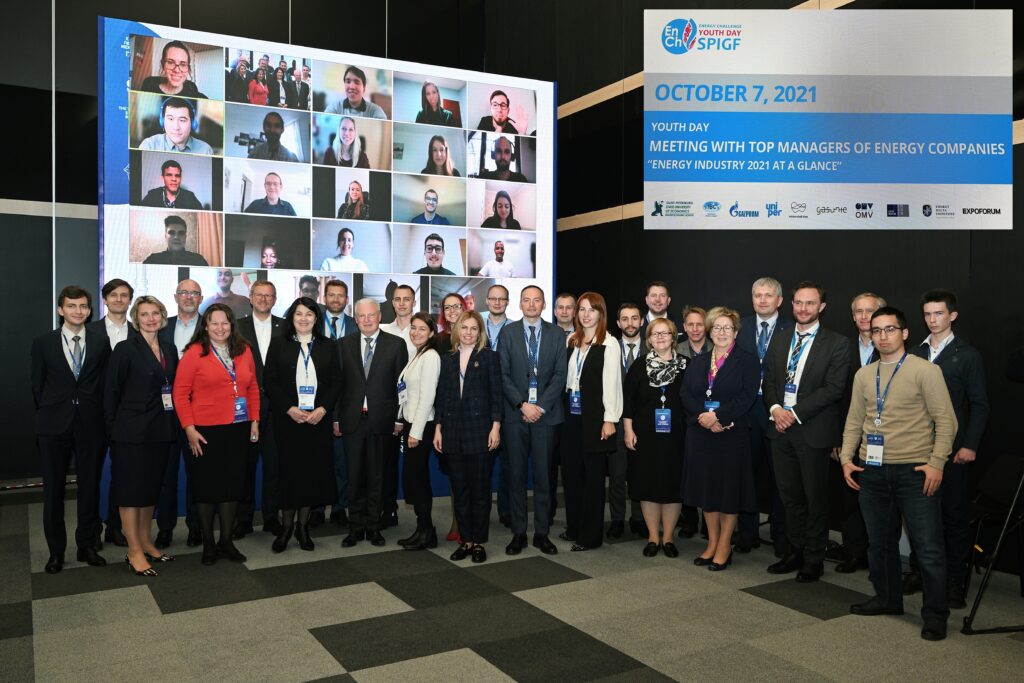
Energy Challenge is a bright and dynamic project that includes many interactive formats and platforms for interaction between talented young people from all over the world and professionals from the energy industry. More than 1,500 participants have passed through the project in seven years. Webinars and educational materials of the Virtual Academy, special assignments, and Youth Day events allow students to gain unique knowledge and experience in the energy sector. Partner companies also get access to the best young talents from all over the world. Together, all project participants aim to find new innovative ideas and solutions in the field of energy.
The development and implementation of the project this year were provided by a working group from HES UNECON: Iana Klementovicius, Pavel Metelev, Maria Shelepova, Sofia Kokareva, Natalia Sarakhanova, Maria Apresyan, and Anna Arbuzova.


